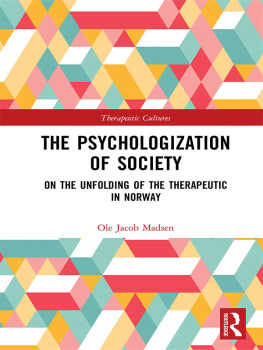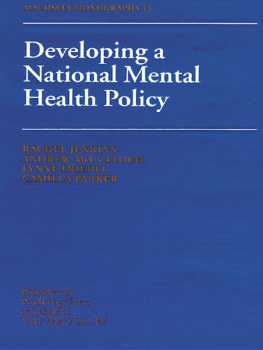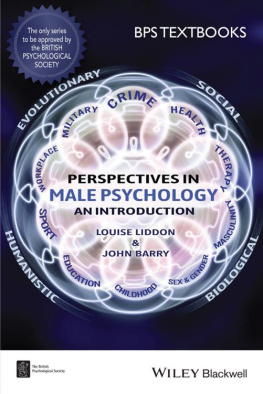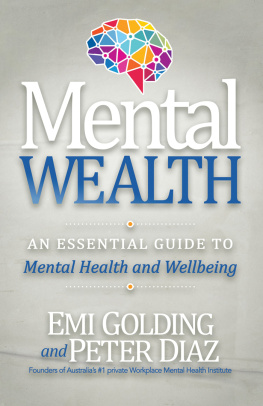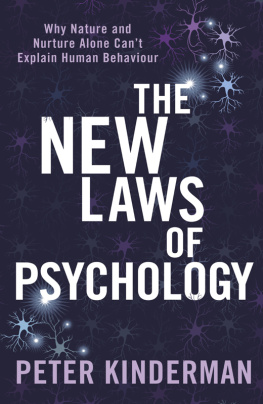RED PILL PSYCHOLOGY
Pychology For Men In A Gynocentric World
By PeterWright

Academic Century Press
2017
TABLE OF CONTENTS
Introduction
A fewdays before deciding to publish this book an unnamed man burnedhimself to death on the forecourt of the New Zealand Parliament.Bystanders rushed to douse him with water but the damage wasalready done. He succumbed to his injuries and passed away in ahospital a few hours later.
Themessage he delivered in the days before his death was a simple one;that we stop torturing men in family courts, an experience he wascurrently going through. Days before his demise he had walked thegrounds of parliament with placards hoping to sway public opinionregarding fairer treatment of men. One of them read, In Iran youstone mothers; in New Zealand fathers, and another My vote No! ToFamily Court lawyers racket.
Predictably the message was ignored by all but a small groupof mens human rights advocates who did their best to privatelysupport him during the ordeal. Having taken his protest to thepublic he at some point became aware that the world was simply notinterested in his call for help and for political reform. Hereached the conclusion that an extreme public act was the onlything capable of jolting people to take notice of the casualmisandry to which he was subjected during his custodycase.
His wasnot the first such tragedy, with numerous men before having setfire to themselves on courthouse steps in hopes of making the worldsee and hear their suffering. In each case the mainstream media,politicians and feminist groups with one voice portray the fragilemental health of such individuals, the result of a mental illness,deeming it an internal psychological matter that has no connectionwith the world outside.
With thattidy explanation society dusts its collective hands of the matterand moves back to the casual misandry and gynocentrism thatpreceded the event, giving ample proof, as if we needed it, of theworlds habit of dismissing mens pain.
In thisbook we aim to reverse that trend and place the onus at leastpartly back on the world, on its gendered assumptions, its casualmisandry, the default gynocentrism, and the casual disregard ofmens issues all of which contributes to the aetiology of malesuffering. The worldly factors that give rise to a mans painshould be no more ignored than environmental bacteria inunderstanding and treating the recurring infections of a fleshwound.
As youwill read in the pages ahead, the therapeutic industry is alsocomplicit in the dismissal of mens pain, often burying it underworking models that would deny very real pressures while shamingmen who do not conform to societys expectations of utilitarianmale behaviour. One purpose of this volume is to redress thosewrongs by placing the mental health spotlight squarely back on ourculture, locating mental health or illness in the body politic andits gendered customs.
This is not to say that social customs are the single causeof psychological suffering as many are indeed internal to theindividual they are his demons. But at the very least mensissues are exacerbated if not outright caused by factors in the widerworld, and it is on those influences we will focus ourattention.
Most ofthe articles gathered here were previously published online andhave since been updated for this volume. The essays were writtenindividually or co-authored by myself and Paul Elam who hasgenerously given permission for them to be published in thisvolume.
Part 1. The Usual Psychology forMen surveys the mental health industrysculture of pathologizing men and boys while denying the legitimacyof their issues. Part 2. A New Psychologyfor Men outlines a new model for workingwith men based on their lived experiences. Part 3. Pathology providesexamples of male suffering with a focus on social factors that sooften contribute to it. Part 4. Relationships looks at the difficultarea of romantic and traditional relationship expectations formen, while proposing an alternative model of peer-stylerelationships based on friendship or companionship. Lastly Part5. Archetypal Musings explores various archetypal themes to illuminate the natureand potential of the male psyche.
PeterWright September 24, 2017
The Usual Psychology For Men
1. The psychology of hate
Yearsback, in another life, I presented at seminars and conferences thatprovided continuing education units for professionalre-certification. In one particular module, I used a portablegrease board in a room in front of my waiting audience. Withoutintroducing myself or saying anything else, I used a grease pen towrite the words Men are at the top of the board, and thensilently invited the audience to finish the sentence.
Almostinvariably, pigs or dogs was the first offering, accompanied bya room full of good-natured chuckles. I would nod my head and writeit down on the board and return to the audience, still silent, formore.
Controlling, says one. Afraid of commitment, says another.Aggressive. Macho Afraid of intimacy. Violent. Sexist,and Power hungry. More of the pejoratives, and almost onlypejoratives, would come from the audience till the board wasfull.
I thenflipped the board to the other side. Women are was the cue, andthe answers were even more rapid fire than they were with men.Strong. Capable Empowered Sensitive. Nurturing, and thelike would fly from the audience to the grease board like a barrageof arrows, till that side too was full.
What do you imagine, I would ask, taking a strategic pausefor a sip of water, that these answers tell us about the realnature of sexism in the way we view men and women?
Askingthem a question with actual spoken words must of thrown them for aloop, because the stock response to that question was almostinvariably a room full of nonplussed, cognitively dissonant faces.And that confusion usually gave way to irritation, clearly at me,though every answer on both sides of that board had come from them.And by the way, the participants in the crowd? They werentaccountants or nurses or teachers or financial advisors.
They were mental health professionals.
They werecounselors, psychotherapists, social workers and the like; the verypeople we love to imagine possess the objectivity to rise above themindset of bigotry and sexism. And the people, despite our want offaith in their work, least likely to actually do it.
I wanteda little more pressure so I asked more questions. How could thisaffect our therapeutic alliance with clients?- Could it make ourrelationships with females enabling?- Punitive with men? Andalways, the final question I asked was Do we carry sexism, againstmen, unconscious or conscious, into our work with each and everyclient? With that question the anger usuallyintensified.
In onetalk, a female participant, a social worker, jumped out of herchair and threw her papers everywhere. Youre the sexist! shehissed at me, and stormed out of the room. She later wrote lettersof complaint both about my topic and the fact I would not sign offon her attendance.
Welcome to the wacky world of mental health.
It is atelling study in the psychology of hate. Indeed, as we peel backthe layers of fantasy from the profession, we are forced into amost disturbing conclusion. Psychology is hate. At least as it ispracticed in western culture.
Its most evident in the junk psychology market. Since themid-eighties, get-rich-quick psychology gurus have often made theirway to bestseller lists. Books like Robin Norwoods Women Who Love Too Much ,Susan Forwards, Men Who Hate Women andthe Women Who Love Them and others havebeen runaway hits, all predicated on rigid stereotypes of men whohate and women who love; all just more additions to the alreadycrowded grease board.




